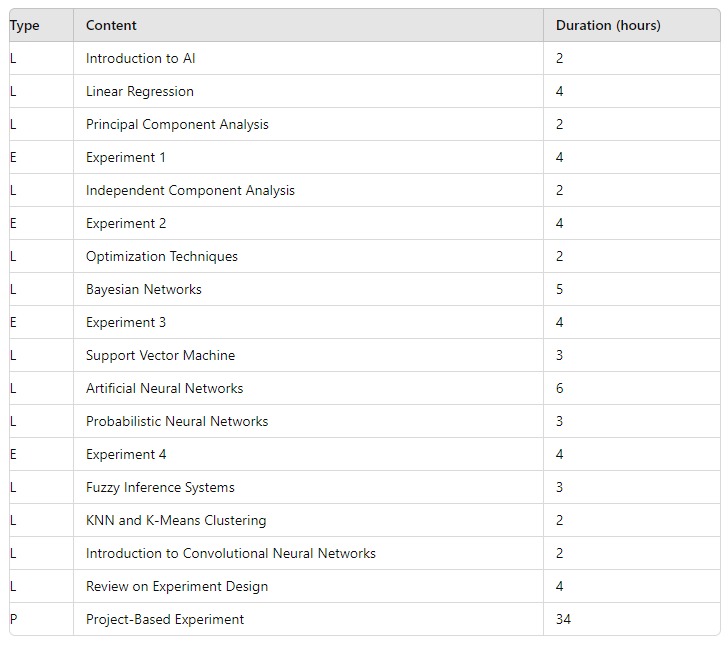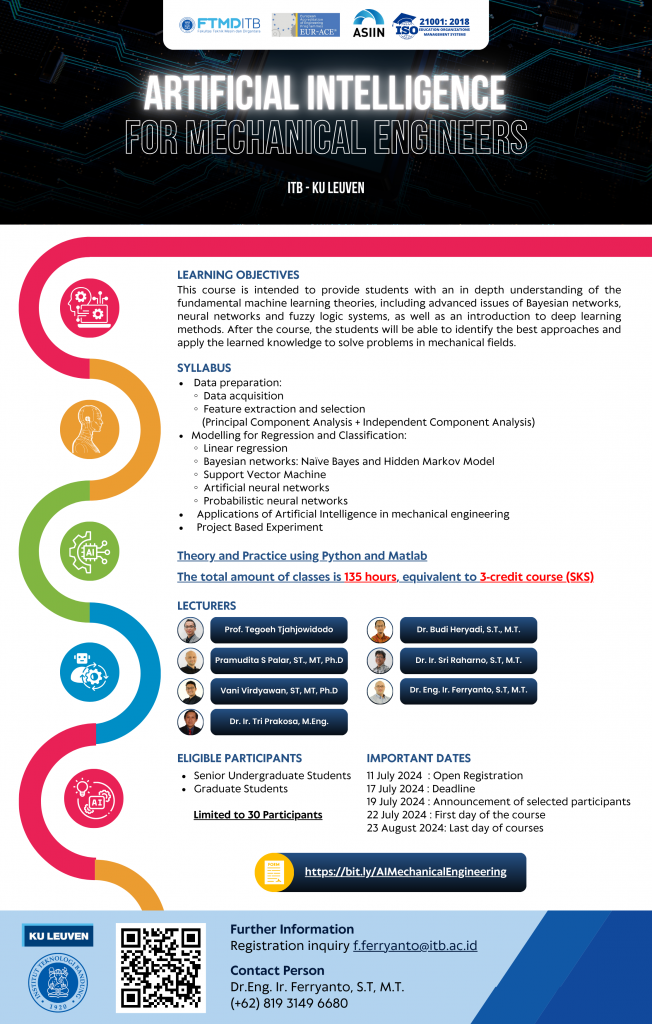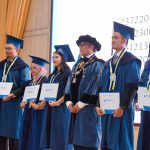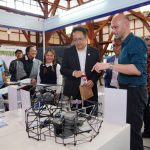Unlock the Future of Engineering: Enroll in Our AI for Mechanical Engineers Course Today!
LEARNING OBJECTIVES
The course aims to equip mechanical engineering students with a comprehensive understanding of fundamental machine learning theories. This includes advanced topics like Bayesian networks, neural networks, and fuzzy logic systems, as well as an introduction to deep learning methods. By the end of the course, students will be able to identify optimal approaches and apply their knowledge to solve problems in the mechanical engineering field.
SYLLABUS
- Data Preparation:
- Data Acquisition
- Feature Extraction and Selection:
- Principal Component Analysis (PCA)
- Independent Component Analysis (ICA)
- Modeling for Regression and Classification:
- Linear Regression
- Bayesian Networks:
- Naïve Bayes
- Hidden Markov Model
- Support Vector Machine (SVM)
- Artificial Neural Networks (ANN)
- Probabilistic Neural Networks (PNN)
- Fuzzy Logic and Fuzzy Systems:
- Takagi-Sugeno (T-S) Fuzzy Modeling
- Adaptive Neuro-Fuzzy Inference System (ANFIS)
- K-Nearest Neighbors (KNN) and K-Means Clustering
- Introduction to Convolutional Neural Networks (CNN)
- Applications of Artificial Intelligence in Mechanical Engineering
LEARNING OUTCOMES
- Acquire a deep understanding of fundamental machine learning theories, including Bayesian networks, neural networks, and fuzzy logic systems.
- Understand basic concepts of deep learning techniques.
- Apply machine learning techniques to mechanical engineering problems.
- Demonstrate knowledge through practical case studies, from data collection and post-processing to feature selection and model generation.
PRE-REQUISITES
- Calculus
- Basic Statistics:
- Probability Density Function
- Bayesian Theory
- Basic Linear Algebra:
- Matrix Operations
STRUCTURES
- Lectures: 36 hours + 4 hours for review of experiment design
- Laboratory Activities: 16 hours
- Project-Based Activities: 34 hours
TEACHING PLAN

Total: 90 hours
- Type:
- L – Lecture
- E – Experiment
- P – Project-Based Activity








